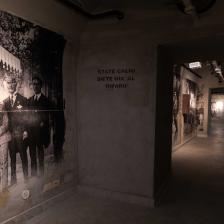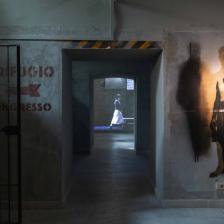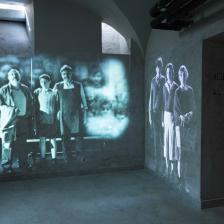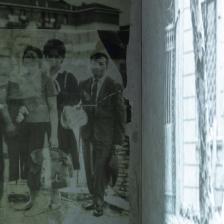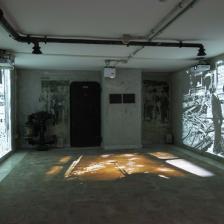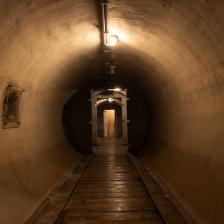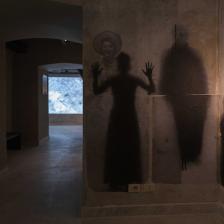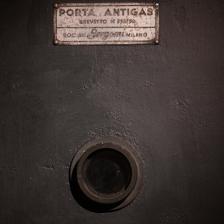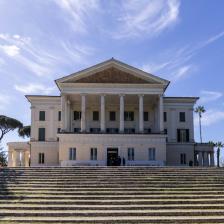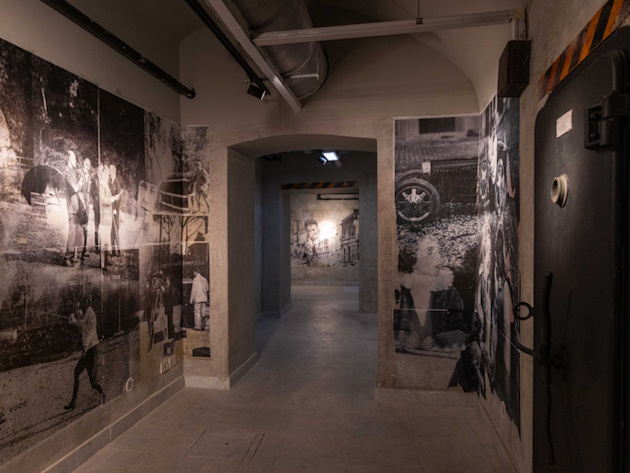
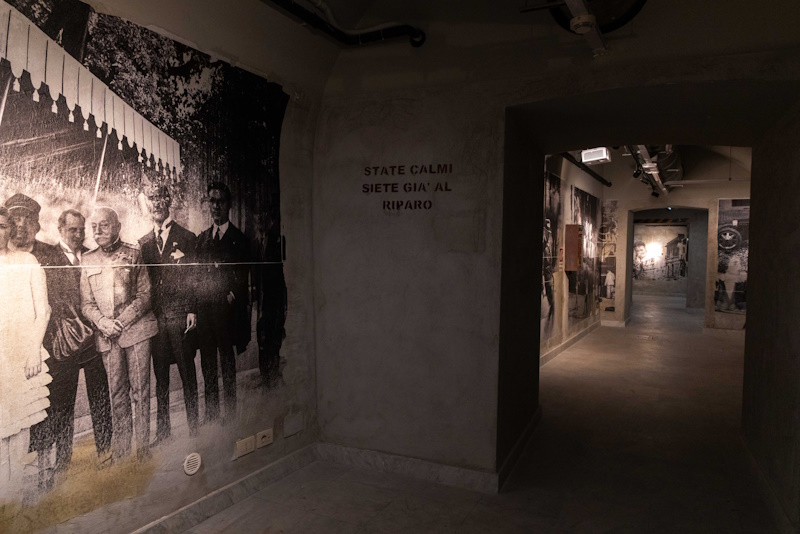
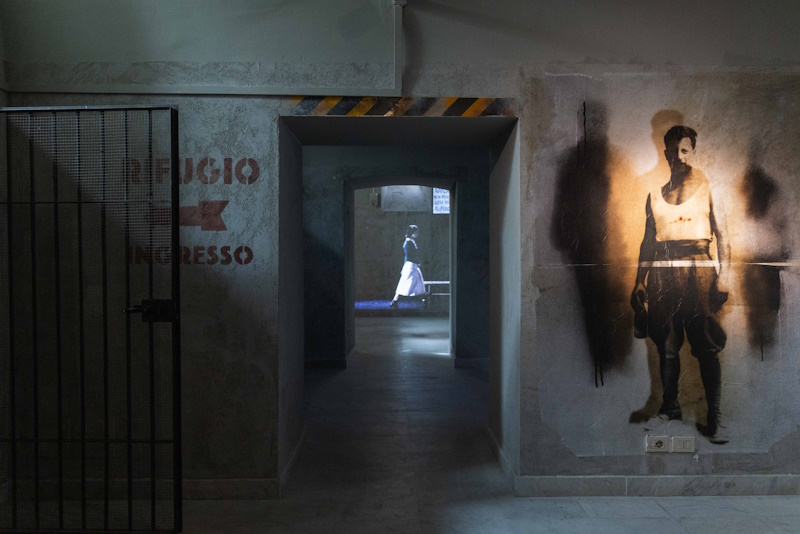
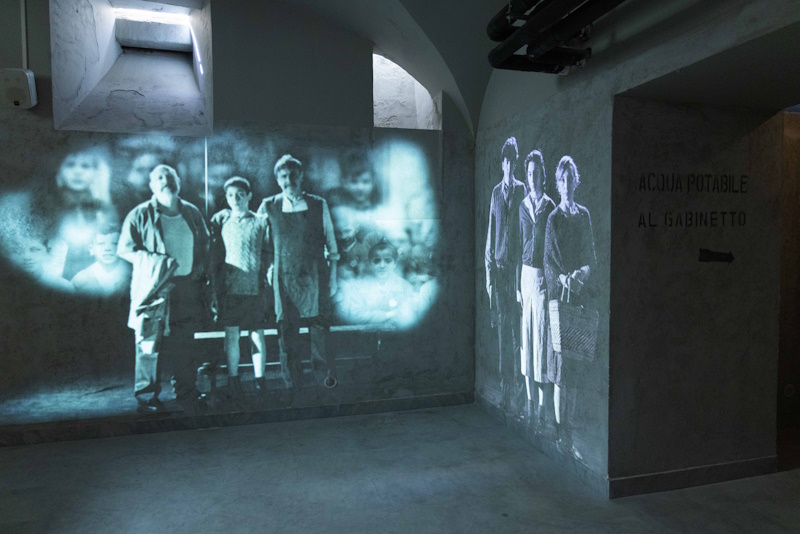
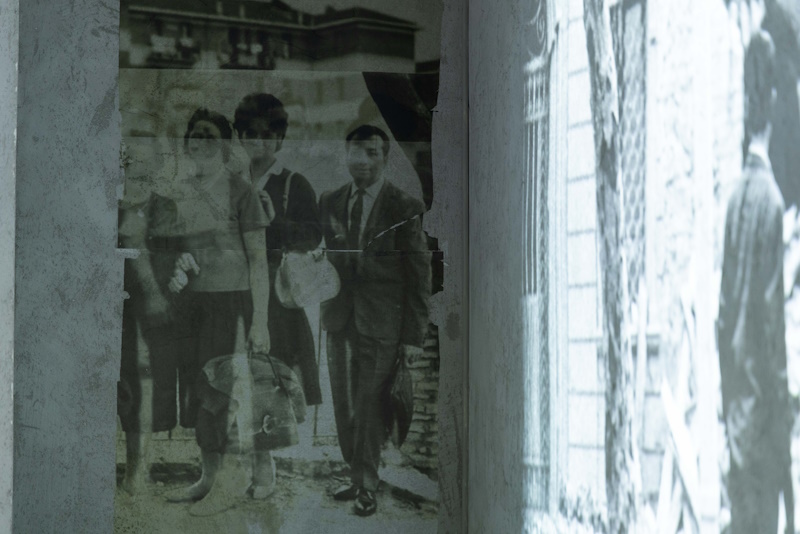
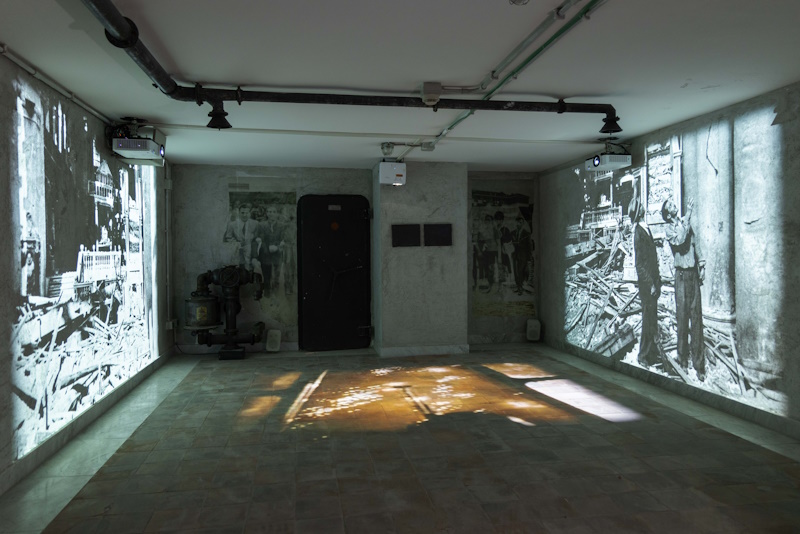
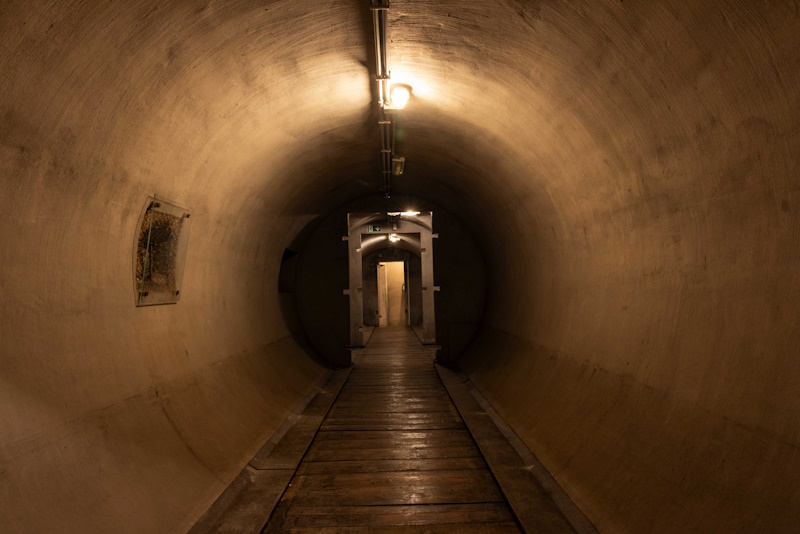
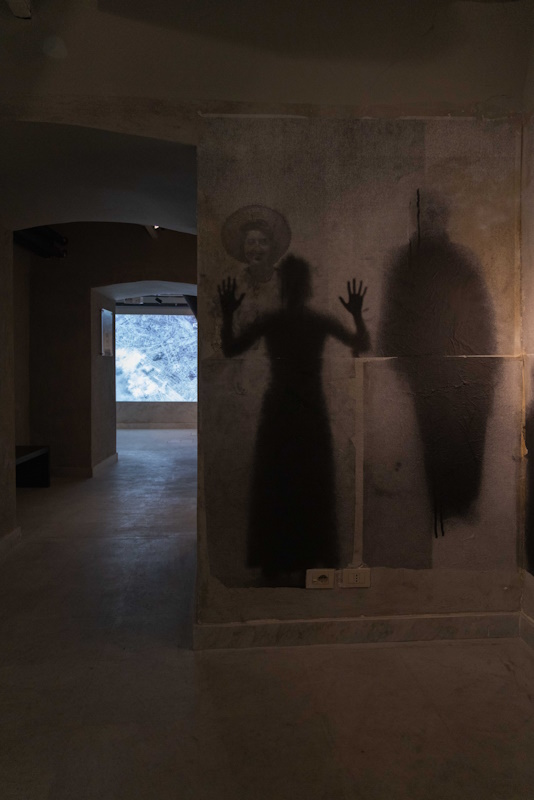
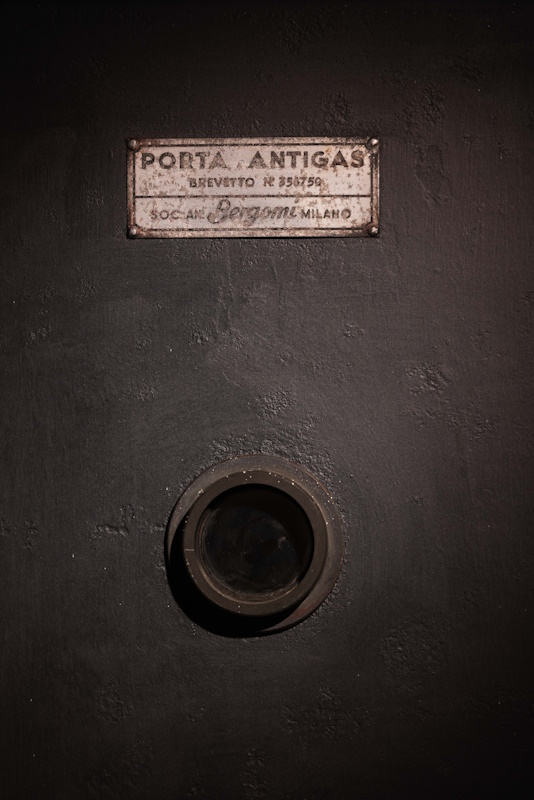
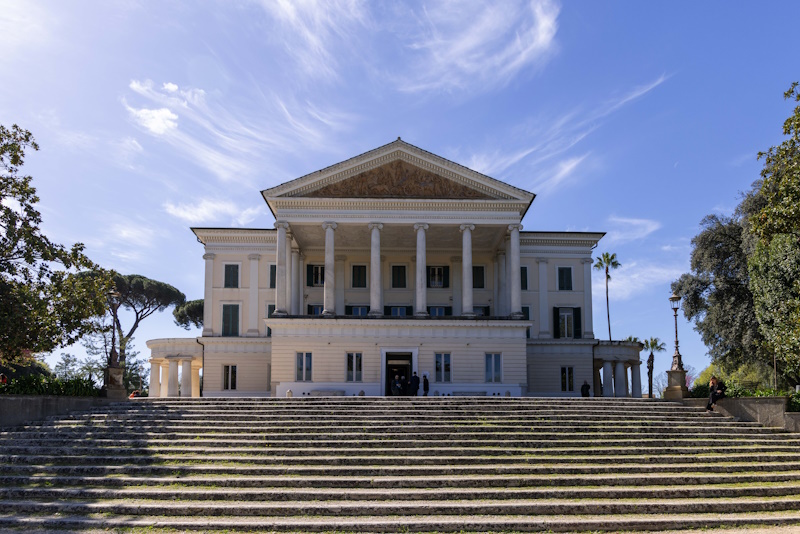
Located below the Casino Nobile of Villa Torlonia, the two underground structures reopen with a new multimedia set-up allowing for an immersive and experiential visit
Thanks to the efforts of Roma Capitale, Assessorato alla Cultura - Sovrintendenza Capitolina ai Beni Culturali, a piece of Rome's history is once again accessible to Romans and tourists alike, evoking, more than eighty years later, one of the darkest and most dramatic pages of the city's history, hit by 51 air raids between July 1943 and May 1944.
The Bunker's historical memory has been reconstructed through a photographic and audio-visual display, privileging the narration and evocation of the past through sounds and images.
Based on an accurate study of the historical and photographic documentation, the new multimedia display highlights the original architectural features of the complex and meets the twofold need
- to provide historical-documentary information on Rome during World War II and on Mussolini's decision to make Villa Torlonia his residence in the city
- to offer an immersive tour that will take you through the experience of an air raid inside an underground shelter.
The new visit itinerary
Descending the stairs from the halls of the Casino Nobile to the basement of the building, you cross in an instant both an architectonic and an architectonic caesura: on one side air, light, beauty, on the other darkness, humidity and a feeling of constriction.
Conceptually divided into three parts, the path winds its way through the basement to the Bunker, from which a long corridor then leads out into the park.
1. Mussolini's life at Villa Torlonia
The visit begins with a video that recounts, through historical photos, the life of Mussolini and his family at Villa Torlonia: parties, official ceremonies, tennis matches, horse riding exercises. With Italy's entry into the war, the need to protect the Duce from possible air attacks arises and the construction of the shelters and the Bunker begins.
In the following rooms, the historical period of the bombing of Rome, in particular the bombing of the San Lorenzo district, is evoked through newsreels of the time.
In addition to the projections of historical documents, the exhibition makes constant use of photo collages that appear as if printed directly on the walls.
2. Life in the shelters
The following three rooms are interconnected by a series of synchronised projections that immersively and engagingly reconstruct episodes of what life must have been like inside an air raid shelter during a bombing raid.
3. The Bombed City
A series of projections depicts the dual perspective of those who bombed and from above did not perceive the effects, and those below, who suffered the consequences. On the floor images of Rome as seen from the planes in flight, during a bombing raid, run, while on the walls the city in rubble appears.
4. The Bunker
Through a steep staircase, you reach the last stage of the tour: the actual bunker located at a depth of 6 metres. Its large cylindrical structure has been deliberately left free of objects or projections to enhance its structural quality. In this space, an air raid is simulated through the reproduction of sounds (sirens, approaching aircraft, detonations) and ground vibrations.
Historical notes
Between 1929 and 1943, Villa Torlonia was the private residence of Benito Mussolini and his family, consisting of his wife Rachele and children Edda, Vittorio, Buno, Romano and little Anna Maria.
Beginning in 1940, with Italy's entry into the war and the first bombings, three underground structures were built in the villa to protect the then Head of Government from possible air raids.
The first shelter was arranged by adapting the premises of an old underground cellar located below the small lake known as 'del Fucino' near the theatre. Soon it was decided to build more resistant and safer structures, to be built under the Casino Nobile.
The air-raid shelter was built in 1941 in the basement of the palace and used in 1942 and 1943. The rooms, strengthened with 120 centimetres of reinforced concrete, were equipped with anti-gas doors and an air purification and exchange system.
The armoured structure of the Bunker, on the other hand, whose construction began in December 1942 and remained unfinished after Mussolini's deposition and arrest on 25 July 1943, is located under the square in front of the Casino Nobile, at a depth of 6 metres. It has a cross-shaped plan with 15-metre long circular tunnels with a diameter of 2.50 metres, protected by a 4-metre thick reinforced concrete wall.
At the time of the construction stoppage, watertight doors, forced ventilation equipment and bathrooms were still lacking.
The project is curated by Federica Pirani and Annapaola Agati. Organisation and museum services by Zètema Progetto Cultura.
For all information, timetables, how to visit and for online purchasing, visit: museiincomuneroma.vivaticket.it
Informaciones
From 5 April 2024
Before planning the visit, CONSULT THE NOTICES
VISITING TOURS (entrance from the Casino Nobile and exit in the Park)
> Individual visitors
Friday: 14.00 - 15.00 - 16.00 - 17.00;
Saturday: 10.00 - 11.00 (visit in English) - 15.00 - 16.00 - 17.00;
Sunday and public holidays 10.00 - 11.00 - 12.00 - 14.00 - 17.00
special days: Thursday, 25 April 2024; Thursday, 15 August 2024; Friday, 01 November 2024 and Thursday, 26 December 2024
at 10.00; 11.00; 12.00; 14.00 and 17.00.
> Groups (schools, guides, groups without a guide, etc.):
Tuesday to Thursday: 10.00 - 11.00 - 12.00 - 14.00 - 15.00 - 16.00 - 17.00
Friday: 10.00 - 11.00 - 12.00
Saturday: 12.00 - 14.00.
Sunday and holidays: 15.00 - 16.00 (also available in English, French, Spanish, German)
 Condividi
Condividi












































